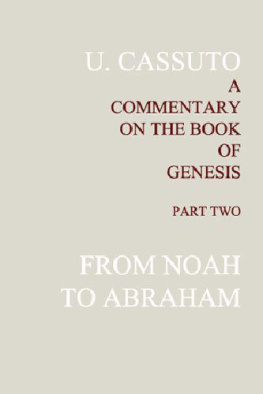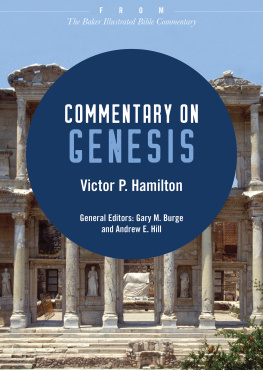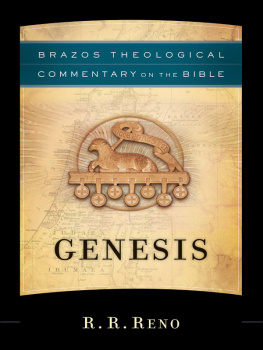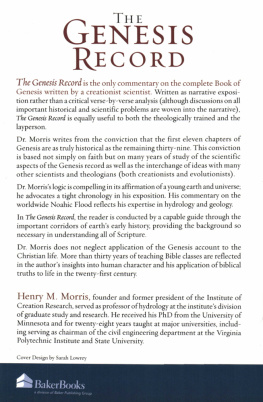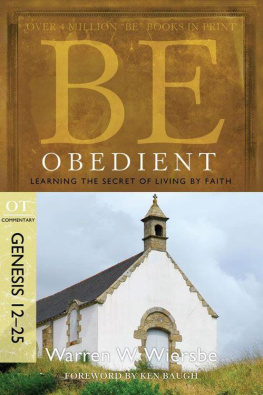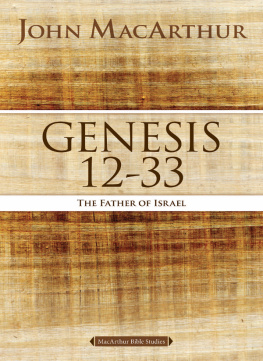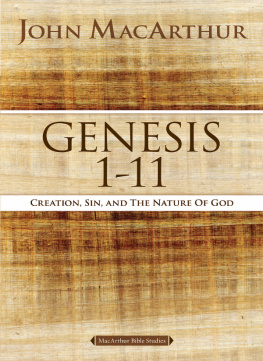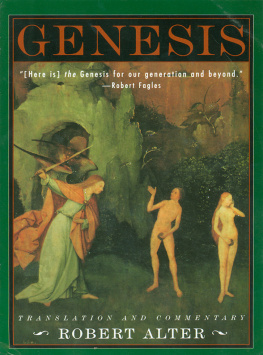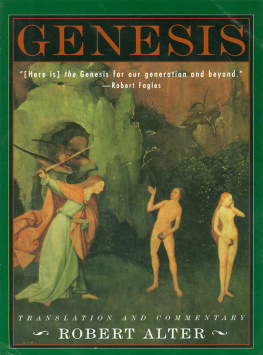Umberto Cassuto - A Commentary on the Book of Genesis, Part 2: from Noah to Abraham
Here you can read online Umberto Cassuto - A Commentary on the Book of Genesis, Part 2: from Noah to Abraham full text of the book (entire story) in english for free. Download pdf and epub, get meaning, cover and reviews about this ebook. year: 0, genre: Religion. Description of the work, (preface) as well as reviews are available. Best literature library LitArk.com created for fans of good reading and offers a wide selection of genres:
Romance novel
Science fiction
Adventure
Detective
Science
History
Home and family
Prose
Art
Politics
Computer
Non-fiction
Religion
Business
Children
Humor
Choose a favorite category and find really read worthwhile books. Enjoy immersion in the world of imagination, feel the emotions of the characters or learn something new for yourself, make an fascinating discovery.
- Book:A Commentary on the Book of Genesis, Part 2: from Noah to Abraham
- Author:
- Genre:
- Year:0
- Rating:4 / 5
- Favourites:Add to favourites
- Your mark:
- 80
- 1
- 2
- 3
- 4
- 5
A Commentary on the Book of Genesis, Part 2: from Noah to Abraham: summary, description and annotation
We offer to read an annotation, description, summary or preface (depends on what the author of the book "A Commentary on the Book of Genesis, Part 2: from Noah to Abraham" wrote himself). If you haven't found the necessary information about the book — write in the comments, we will try to find it.
Umberto Cassuto: author's other books
Who wrote A Commentary on the Book of Genesis, Part 2: from Noah to Abraham? Find out the surname, the name of the author of the book and a list of all author's works by series.
A Commentary on the Book of Genesis, Part 2: from Noah to Abraham — read online for free the complete book (whole text) full work
Below is the text of the book, divided by pages. System saving the place of the last page read, allows you to conveniently read the book "A Commentary on the Book of Genesis, Part 2: from Noah to Abraham" online for free, without having to search again every time where you left off. Put a bookmark, and you can go to the page where you finished reading at any time.
Font size:
Interval:
Bookmark:
FROM NOAH TO ABRAHAM
I
PUBLICATIONS OF THE
PERRY FOUNDATION FOR BIBLICAL RESEARCH
IN THE HEBREW UNIVERSITY OF JERUSALEM
II
A COMMENTARY
ON THE BOOK OF
GENESIS
by
U . CASSUTO
Late Professor of Bible at the Hebrew University of Jerusalem
Translated from the Hebrew by
ISRAEL ABRAHAMS
Professor of Hebrew, University of Cape Town
PART II
FROM NOAH TO ABRAHAM
GENESIS VI 9-XI 32
WITH AN APPENDIX: A FRAGMENT OF PART III
VARDA BOOKS
skokie, illinois, usa
5765 / 2005
III
COPYRIGHT

Copyright by Varda Books
All rights reserved. No part of this book may be reproduced in any form of reproduction without permission in writing from the original publisher except by a reviewer who may quote brief passages in a review to be published in a magazine, newspaper or online.
This electronic edition is based on the printed one, published in 1992
NEW ISBN 1-59045-799-4 Scholar PDF edition
First published in Hebrew, Jerusalem 1949
and reprinted in 1953, 1959, 1965, 1969, 1974, 1978, 1983, 1986
First English edition, Jerusalem 1964
and reprinted in 1974, 1984, 1992
By The Magnes Press
The Hebrew University
Jerusalem 1992
ISBN 9652235407
IV
PART TWO
FROM NOAH TO ABRAHAM
Commentary on Genesis VI 9XI 32
V
This page is intentionally left blank
VI
TRANSLATORS FOREWORD
From Noah To Abraham is the second volume in a series of comprehensive commentaries on the Book of Genesis that the late Professor Umberto Cassuto had planned as part of a magnum opus embracing the whole Pentateuch and also the Book of Psalms.
The first volume bears a separate title, From Adam To Noah, but in the present book the author refers to it as Part I, in order to emphasize the relationship of the two volumes as an exegetical sequence. The nexus between the two commentaries is fully borne out by the style and techniques employed in the annotations. Above all the principles of interpretation are the same. These had previously been expounded by Professor Cassuto in his masterly Italian study La Questione delta Genesi (1934), and summarized in his shorter Hebrew work, The Documentary Hypothesis (1942). Thereafter, elaborated in the light of the epoch-making archaeological discoveries of our time, especially in the field of Ugaritic literature, they formed the basis of his commentary on the opening chapters of Genesis. Now, by extending his method of exegesis in this volume to another section of the Torah, Cassuto indirectly buttressed his theories with new evidence of the inherent rightness of his approach. Just as in the realm of physics or chemistry every additional experiment that produces results consonant with a given hypothesis is regarded as added confirmation of its probability, so in the sphere of Biblical studies the successful extension of the area of exposition serves to validate the commentators interpretative principles. These considerations apart, the present work is rich in original insights and scholarly illuminations that make it an invaluable guide to the Bible studentbe he an erudite scholar or just a well-read lay enquirerirrespective of the opinions he holds with regard to the Higher Critical doctrines.
The first Hebrew edition of From Noah To Abraham was confined
VII
to the sidra or pericope Noah (Gen. vi 9xi 32). Subsequent editions, however, included a fragment of the next pericope ( ibid. xii 1xvii 27) on which the author had started to work with the intention of producing a companion volume to his first two commentaries on Genesis; he named the new book, Abraham And The Promised Land. Man proposes... It was not, alas, Cassutos destiny, to our infinite sorrow, to complete his plans. At the fifth verse of the thirteenth chapter of the first book of the Torah the pen fell from his strengthless hand.
The sudden and untimely passing of Cassuto, when he was at the height of his scholarly creativity, was an immeasurable loss to Jewish scholarship as a whole, and more specifically to Bible research and exposition. Even the fragment from the third volume of his commentary on Genesis is a brilliant example of exegetical writing. I shall, I believe, be voicing the views of many Biblical exegetes when I declare that we cannot but be grateful that this segment of his contemplated work was vouchsafed us, although the heart yearns for what the maestro still had in his mind but was not granted to bequeath to us in writing.
As in the case of the earlier volumes that I translated, I wish to acknowledge my debt of gratitude to all who assisted me in my labours. My heartfelt thanks go out in the first instance to Mr. Silas S. Perry, the munificent founder of The Perry Foundation for Biblical Research in the Hebrew University of Jerusalem for his unfailing understanding, encouragement and inspiration. Dr. S. E. Loewenstamm came to my aid on all Ugaritic problems, and directly and indirectly helped me to unravel other baffling questions. Dr. Milka Cassuto-Salzmann prepared the Indexes and, as convener of the proof-readers, saw the book through the press with true filial devotion and zeal for correctness in every detail. The Printers had a major struggle in satisfying a fastidious and oft-times trying translator, but emerged triumphant. To all these, and others whom I cannot mention here, I wish to convey my sincere and grateful appreciation.
ISRAEL ABRAHAMS
Cape Town
December, 1962
Kislev, 5723
VIII
KEY TO THE TRANSLITERATION
HEBREW
(a) CONSONANTS

Note: (1) Unsounded  at the end of a word is not represented in the transcription;
at the end of a word is not represented in the transcription;
(b) VOWELS
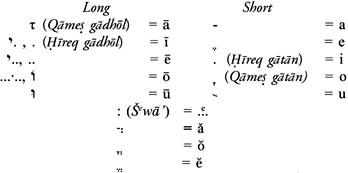
Note: Capital E represents  ,
,  and
and  ; thus
; thus  is transliterated Elohim, and
is transliterated Elohim, and  is transcribed El .
is transcribed El .
ARABIC AND OTHER LANGUAGES
The method commonly used in scientific works was followed in the transliteration of Arabic, Akkadian, Egyptian and Ugaritic words.
IX
This page is intentionally left blank
X
CONTENTS
Translators Foreword
Key to transliteration
Abbreviations
Preface
PART II: FROM NOAH TO ABRAHAM
SECTION ONE : The Flood (vi 9ix 17)
Introduction Rubric of Section (vi 9a) Act One: The Punishment (vi 9bvii 24) First Paragraph: The Corruption of All Flesh and the Righteousness of the Good Man (vi 9b12) Second Paragraph: Noah is told of the Coming Doom and is enjoined to make the Ark (vi 1322) Third Paragraph: The Command to enter the Ark (vii 15) Fourth Paragraph: The Fulfillment of the Injunction to enter the Ark (vii 69) Fifth Paragraph: The Beginning of the Flood (vii 1016) Sixth Paragraph: Water upon the Earth (vii 1724) Act Two: The Deliverance (viii 1ix 17) Seventh Paragraph: The First Rays of Light (viii 114) Eighth Paragraph: The Command to leave the Ark (viii 1517) Ninth Paragraph: The Exit from the Ark (viii 1822) Tenth Paragraph: Gods Blessing to Noah and his Sons (ix 17) Eleventh Paragraph: The Divine Promise to fulfill and extend the Covenant (ix 811) Twelfth Paragraph: The sign of the Covenant (ix 1217)Next pageFont size:
Interval:
Bookmark:
Similar books «A Commentary on the Book of Genesis, Part 2: from Noah to Abraham»
Look at similar books to A Commentary on the Book of Genesis, Part 2: from Noah to Abraham. We have selected literature similar in name and meaning in the hope of providing readers with more options to find new, interesting, not yet read works.
Discussion, reviews of the book A Commentary on the Book of Genesis, Part 2: from Noah to Abraham and just readers' own opinions. Leave your comments, write what you think about the work, its meaning or the main characters. Specify what exactly you liked and what you didn't like, and why you think so.

